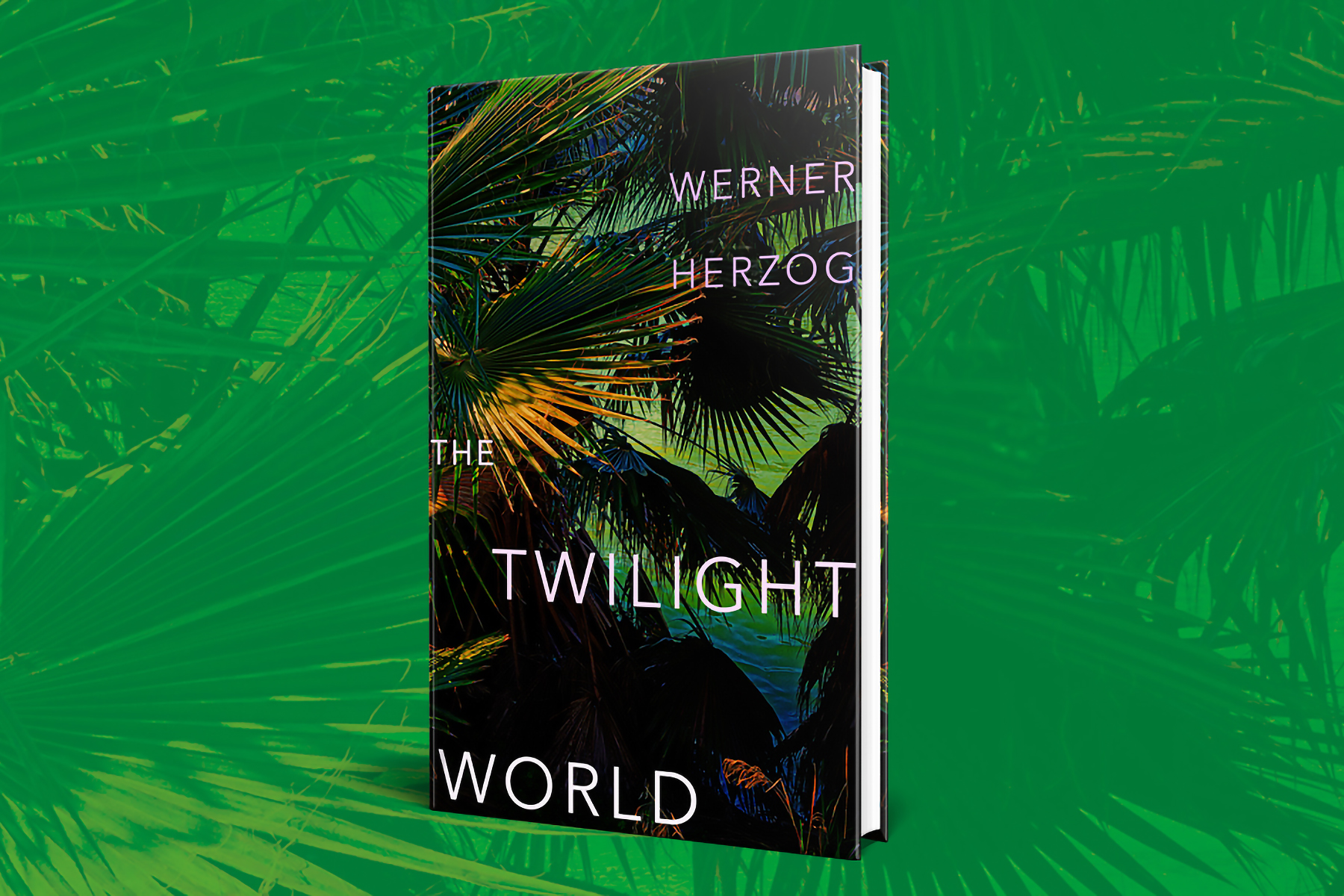- Home |
- Search Results |
- The Twilight World by Werner Herzog
The Twilight World by Werner Herzog
The iconic film-maker’s first novel immortalises Lieutenant Hiroo Onoda, a Japanese soldier who continued fighting World War II for decades after its end. In this extract, Onoda receives his orders to defend Lubang Island – whatever the cost.

Lubang Airfield, December 1944
The airfield is small, with cracked, washed-out asphalt that hasn’t been patched in years. There are a few single-story buildings in the background, rusted tin roofs, all in varying stages of neglect. On the other side of the strip is the open sea, with the small island of Cabra to the North, barely visible in the haze. A Japanese troop transporter is at anchor just offshore. Small, clumsy landing craft are ferrying Japanese troops out to it. A battalion of tired Japanese soldiers has marched up in formation. Their uniforms have not had the jungle fully washed out of them, a few of the men are wearing rubber boots they must have got from the locals. As they march toward the landing craft, they pass the wreckage of two fighter planes that has been cleared off the runway.
Major Taniguchi and Onoda, thirty years his junior, in the shade of an empty hangar. Onoda, standing at attention, is receiving orders from his superior officer. The Major is formal.
“Lieutenant Onoda, I have orders for you from headquarters.” Onoda stands a little more stiffly.
“Yes, sir, Lieutenant Onoda at your command.”
“You are the only man here who has had training in secret warfare, in guerrilla tactics.”
“Sir. Major.”
You are to defend its territory by guerrilla tactics, at all costs.
“These are your orders. As soon as our troops have been withdrawn from Lubang, it is your duty to hold the island until the Imperial Army’s return. You are to defend its territory by guerrilla tactics, at all costs. You will have to make your own decisions. No one will give you orders. You must be self-reliant. Henceforth there are no more rules, you make the rules.”
Onoda is impassive. “Yes, sir. Major.”
“There is only one rule,” Taniguchi continues. “You are forbidden to die by your own hand. In the event of your capture by the enemy, you are to give them all the misleading information you can.”
The Major beckons Onoda into the almost cleared hangar.
Everything here looks temporary. No Japanese planes being refitted, just an untidy heap of provisions and military equipment. The two officers walk up to a wall that still has several maps pinned to it; one is of the island of Lubang. The Major points to it.
“You have two immediate tasks, right now, even before the evacuation is complete. One: all explosives still on the island are placed under your control. With them you are to destroy this airfield. Two: with any remaining explosive, you are to destroy the landing pier at Tilik. These are the two prime access points to the enemy.”
In this type of warfare, there is no prospect of medals.
Onoda studies the map. The island is an oblong shape, some twenty- five kilometers in length. In its central section it is hilly and overgrown with jungle, without any roads or settlements. Facing Tilik, and not far from the town of Lubang to the North, lies the Bay of Manila, some eighty kilometers distant. The narrow southwestern tip of the island, across the hills, is flat, but again without any discernible roads. All there is is one small village: Looc.
Onoda asks: “How many men will I have under my command, sir?”
“We will put together a troop for you, Onoda,” says the Major. “Admittedly, there won’t be anyone among them who is an expert in secret warfare. And no one will know about your orders. In this type of warfare, there is no prospect of medals.”
“I don’t fight for medals.”
The men don’t speak.
“Sir?” asks Onoda.
“If you have questions, ask now. This is your chance.”
“Will my responsibility be confined to Lubang, or do I have a wider sphere of operations? The small outlying islands, Cabra, Ambil, Golo?”
You will be like a ghost, elusive, a continuing nightmare to the enemy.
“Why do you ask?”
“Major, the island is not especially big, and it’s two-thirds covered in jungle. It’s not much for a guerrilla war.”
“Onoda, you should bear in mind that Lubang’s strategic significance is all the greater,” replies the Major. “When the Imperial Army returns in triumph, we will use it as a launching pad for a great attack on the Bay of Manila. The enemy will have concentrated all its forces there.”
Onoda’s expression remains opaque.
The Major wants no possibility of misunderstanding. “Your base of operations will be the jungle. Your campaign will be one of attrition. Skirmishes, ambushes, unpredictable attacks. You will be like a ghost, elusive, a continuing nightmare to the enemy. Your war will be without glory.”